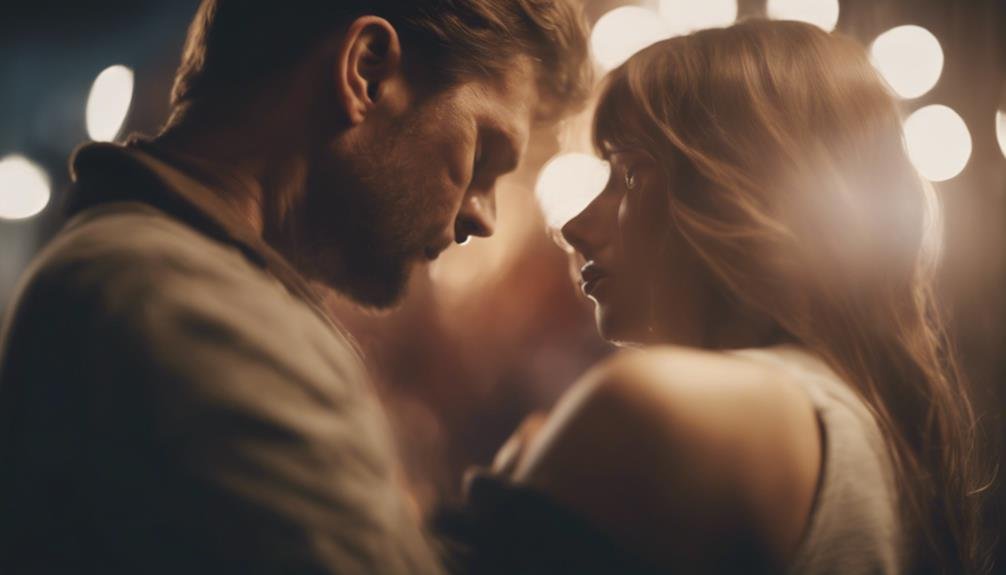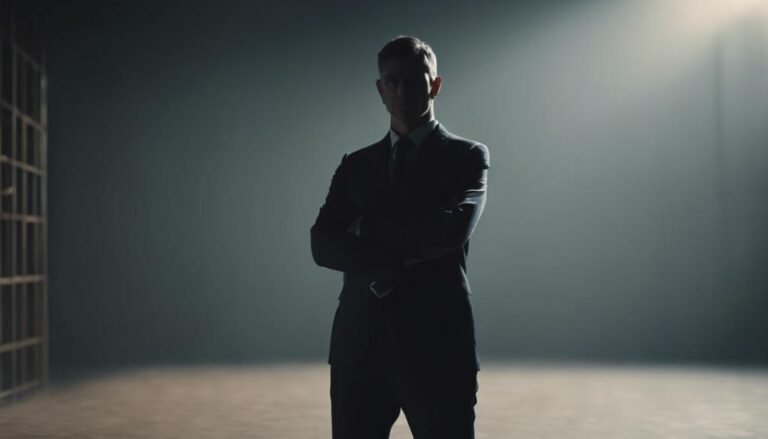When you’re stuck in love with an emotional abuser, it’s important to acknowledge the intricate mix of emotions and mental ties that keep you ensnared in harmful patterns. Understanding the reasons behind your feelings can be the first step towards breaking free from this cycle. You may feel torn by conflicting emotions and overwhelmed by the rollercoaster of love and pain. Recognizing your unmet emotional needs and seeking support are essential in untangling yourself from this toxic bond. Remember, there’s a path to healing and self-discovery waiting for you.
Key Takeaways
- Understanding emotional manipulation and coercion tactics.
- Coping with love deprivation and feelings of guilt.
- Overcoming societal judgments and emotional investment.
- Healing from the tumultuous emotional impact.
- Reshaping expectations for self-love and healthy relationships.
Factors Influencing Love for Abusers
Factors that influence your continued love for an emotional abuser are multifaceted and deeply ingrained in complex emotional dynamics. Emotional manipulation and psychological coercion create a toxic dependence, making it challenging to break free.
The abuser’s tactics of love deprivation play into your insecurities, leading you to believe they’re the only source of affection. This toxic cycle can leave you feeling incapable of coping alone, trapped in guilt over the impact on your children, and burdened by shame from societal judgments.
Additionally, the emotional investment you’ve made in the relationship can make it difficult to let go. Understanding these influences can help you navigate the path towards healing and breaking free from the grip of an abusive relationship.
Emotional Impact of Abusive Love
Managing the emotional impact of loving an abuser can be a tumultuous journey fraught with complexities and inner turmoil. The internal struggles and emotional turmoil you face are valid and challenging.
It’s normal to feel trapped in a cycle of anxiety and fear, constantly battling toxic worries that threaten your sense of peace. Breaking free from this cycle requires courage and self-compassion.
Recognize that your emotions are valid, and seeking support from trusted individuals or professionals can help navigate this difficult journey. Remember, it’s okay to prioritize your well-being and seek a life free from emotional turmoil.
You deserve to experience love and connection that uplifts and nurtures your soul.
Driven by Unmet Emotional Needs
Managing the emotional impact of loving an abuser is often intertwined with unmet emotional needs that drive your continued attachment to toxic relationships. Your desire for connection and love plays a significant role in this dynamic.
The journey towards self-love can feel challenging when you’ve never experienced healthy love before. It’s natural to crave authentic connections, yet struggle to recognize and cultivate them due to past experiences.
Recognizing these unmet emotional needs is the first step in your self-love journey. By understanding that your longing for love and companionship stems from deeper emotional voids, you can begin to reshape your expectations and embark on a path towards healing and fulfillment.
Challenges in Understanding Love
Understanding the complexities of love can present individuals with various challenges, especially when past experiences shape their understanding of relationships.
Love misconceptions and struggles with self-worth can cloud your emotional understanding, making it challenging to differentiate between healthy and toxic relationships.
Your difficulty in understanding genuine love might stem from a lack of exposure to healthy examples or an inner uncertainty about the concept of love.
Generational patterns of limited love experiences can further compound these challenges.
It’s important to recognize that love shouldn’t be earned, and self-worth isn’t dependent on external validation.
Misconceptions in Love Relationships

Managing love relationships can be challenging when misconceptions about love and unrealistic expectations cloud your understanding. Relationship misconceptions often lead to seeking external validation for self-worth, creating a cycle of dependency on others to feel valued.
Unrealistic love expectations can set you up for disappointment, as viewing love as a downward trajectory or expecting it to diminish over time can hinder the growth of a healthy relationship. It’s important to understand that self-worth shouldn’t be dependent on others’ validation, but rather rooted in your own perception of yourself.
Frequently Asked Questions
How Can I Break Free From the Emotional Grip of an Abuser?
To break free from an emotional abuser’s grip, start by setting boundaries and seeking therapy. You deserve a life free from toxicity. You have the strength to prioritize your well-being and create a healthier future.
Is It Possible to Learn to Love and Value Myself?
You can absolutely learn to love and value yourself. Your self-worth journey involves emotional healing, self-compassion, and understanding your inherent value. It’s a process of growth, acceptance, and self-discovery that leads to genuine self-love.
What Steps Can I Take to Redefine My Understanding of Love?
To redefine your understanding of love, start your self-worth journey by embracing self-love and setting boundaries. Through this healing process, you can learn to value yourself, nurture healthy relationships, and break free from toxic cycles.
How Can I Stop Seeking Validation From Toxic Relationships?
In your pursuit of worthiness, remember you’re a garden not a desert. Nurture self-care boundaries, like a vigilant gardener tending delicate blooms. Cultivate inner strength, letting toxic soil heal into fertile ground.
Can I Ever Trust Myself to Recognize and Accept Healthy Love?
You can trust yourself to recognize and accept healthy love. Start with self-compassion and self-awareness. Healing involves setting boundaries. Embrace your worth and learn from past experiences. Believe in your ability to cultivate and maintain fulfilling relationships.
How Can I Recognize and Break Free from Emotional Abuse in a Relationship?
Recognizing and breaking free from an emotionally abusive relationship can be challenging, but it is essential for your well-being. Signs of a breaking trauma bond abusive relationship include constant criticism, manipulation, and controlling behavior. Seek support from friends, family, or a therapist to help you navigate the process of breaking free.
Conclusion
Despite the pain and confusion, you continue to love the one who hurts you. It's a twisted dance of affection and abuse, leaving you yearning for love in all the wrong places.
But remember, true love doesn't hurt. It uplifts, supports, and empowers. Break free from the chains of toxic love and embrace the beauty of genuine self-love.
Only then can you truly experience the love you deserve.







